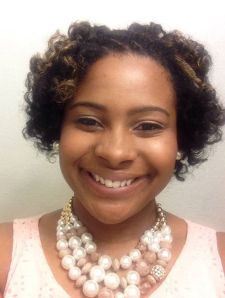August is here and that means it’s just about time for rising high school seniors to start thinking about (and working on!) their college admissions essays. Why start now? It can be difficult to work on your essay once school has started since college essays compete with school work, extracurricular activities, and part-time jobs for your time. That’s why in a new series, we’re giving you behind-the-scenes access to some of InstaEDU’s expert college admissions tutors — how they approached the essay, challenges they faced, and a look at the essays that got them admitted to their dream schools.
This week, we’re excited to feature rising UCLA senior Kate K. an InstaEDU college admissions tutor.

Kate in her high school cap and gown in her small hometown of Three Rivers just south of California’s Sequoia National Park
InstaEDU: How early did you start writing your main college admissions essay?
Kate: I started writing my college admissions essay the summer before I applied to college.
InstaEDU: That’s great that you started early! What was your approach to starting to write your essay?
Kate: I knew the essay needed to communicate who I am as a person. I started thinking about what makes me, well, me. What am I excited about? What is a defining characteristic about myself? Once I answered these questions, it was easy to continue writing.
InstaEDU: So what was your essay about?
Kate: I wrote about how growing up in a small, rural town (a defining characteristic about myself) made me who I am today — someone who loves natural history and science.

At the age of 9, Kate already loved spending time in the wild outdoors near her home
InstaEDU: What do you think the main take away or theme from your essay was?
Kate: The main theme of my essay was passion. I wrote about how, in the beginning, I wasn’t passionate about my town — I hated being in a small town, I took it for granted. Then, as I grew up, I realized I loved the life sciences and wanted to pursue it in the future. My new passion was all because I was surrounded by nature as a child.
InstaEDU: What did you learn through the college essay writing process?
Kate: Writing the college essay really made me think about who I am and what I like about myself. I learned about what fascinates me, what makes me jump up and down with excitement, and I have been chasing that down ever since identifying it.
InstaEDU: What’s one thing you wish you knew before you submitted your college admissions essay?
Kate: I wish I knew that it isn’t about how well you write or what’s happened in your life that makes an essay good. What makes an essay good is having a strong topic and following it throughout the paper. Identify what you love. Talk about what you love. Talk about why you love it. Talk about how it’s made you who you are. If you show you are a passionate person about the world, well, colleges love it when people get excited about things because they know that they will stick with it.
InstaEDU: What tips would you offer students who are starting to try and figure out their essay topics?
Kate: What makes an essay stick out to people is you identifying what makes you, well YOU, and what kind of person that makes you. If you like sports, awesome, write about that, but also you need to bring it around and talk about how it makes you more of a team player or a competitive person (in a good way). If you like playing your oboe, fantastic! Write about what you love about the oboe, but also how playing the oboe takes a lot of practice and you are now a more dedicated individual because of it. You get the picture, I hope. Also, don’t use the synonym option in Microsoft Word. Don’t try and sound smarter or like someone else. You have to communicate who YOU are as best as YOU can. Often times if you try and sound smarter, it can come across as dispassionate.
—
If you’re looking for more college admissions essay writing help, stay tuned for more posts in the Tutor Talks series on college admissions essay writing — coming throughout this fall on the InstaEDU blog. And make sure to get in touch with Kate K. and our nearly 2,000 college admissions tutors on InstaEDU for one-on-one college essay writing guidance. Be sure to follow us on Instagram @instaedu_tutoring and on Snapchat at ‘instaedu’ to unlock more Tutor Talks content.







